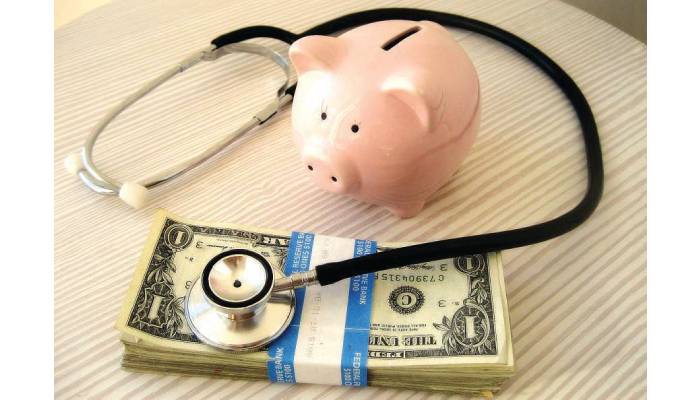
or

Private Hospitals in India care more for money than the direction of the court. Are they Profiteering throwing rule book out of the window? Find out more
The Central Information Commissioner, recently, has directed the Directorate of Health Services to disclose the action taken against private hospitals which breached the conditions of serving EWS patients free of cost and recover the ‘unjust enrichment’ made by them. Responding to a complaint made by Rakesh Kumar Gupta, on his RTI application dated October 30, 2013, for information about compliance of Delhi High Court order of 2007 for recovery of unjust money made by the private hospitals, in his order on December 31 2014, Sridhar Acharyulu said public have a great interest in checking the manipulative tactics of some private hospitals in depriving the people of their treatment facilities and maximizing the profits by taking the undue advantage of concessions given by the government. Even after seven years, the judgment was not implemented.
As DDA and Land & Development Office of Govt of India had allotted land to the registered societies and trust on concessional rates (predetermined and zonal variant rates) for establishment of hospitals, it stipulated the conditions that the hospitals would provide certain percentage of beds in the hospitals free for the poor/indigent category patients. Similarly in the OPD, it was stipulated that free treatment was to be provided to the patients belonging to the indigent category. These hospitals came into functional stages during different times on the conditions varying from 10% of free beds in the IPD to 70% IPD beds in some of the cases. However in most of the cases it was 25% free IPD beds.
A high power committee under the chairmanship of Justice AS Qureshi was also constituted in the year 2000 which recommended that 10% free beds in the IPD and 25% of the patients in the OPD should be provided free treatment. It was also recommended that the conditions should be uniform and applicable to all the allottees with or without having conditions and the free treatment should be totally free. Delhi Govt found these recommendations reasonable and accepted the same and intimated the concerned land allotting agencies, to solve this whole gamut of problems.
Delhi High Court in Civil Writ 2866/2002 delivered judgment on 22.3.2007 pointing out, how 20 private hospitals and nursing homes are unjustly profiteering by enjoying conditional concessions given by the state without fulfilling those conditions such as providing free treatment to patients belonging to economically weaker sections. The court also observed that only poorer and poorer categories of patients go to general public hospitals, and they do not go to the private hospitals due to which the earmarked beds in the private hospitals remain unoccupied. Therefore the govt. hospitals should refer the poor patients to the private hospitals where the requisite facilities are available.
Thus exercising its powers under Section 19(8)(a) Commission requires all the private hospitals/nursing homes to furnish the information through the public authority, i.e., the respondent authority and if not, the Commission will exercise the powers under Section 18(3) to summon the heads of those hospitals and nursing homes with documents/files/records which they are supposed to maintain about the free treatment to EWS sections and payment of money fixed by the committee as unjust enrichment.
The Commission directs Dr. R. N. Das, who is in custody of information about nursing homes in his capacity as Medical Superintendent, who also supposed to implement the judgment, etc., to show cause why maximum penalty cannot be imposed against him for not giving information to CPIO in order that he communicate the same to the appellant, by way of complying with orders of First Appellate Authority and Commission also directs Dr. Lily Gangmei the CPIO, to explain why maximum penalty cannot be imposed against for not collecting the information as per the orders of the First Appellate Authority from Medical Superintendent Nursing Homes and for not furnishing it to the appellant.
Madabhushi Sridhar is Professor and Coordinator, Center for Media Law & Public Policy, NALSAR University of Law, Hyderabad.

Lex Witness Bureau

Lex Witness Bureau

For over 10 years, since its inception in 2009 as a monthly, Lex Witness has become India’s most credible platform for the legal luminaries to opine, comment and share their views. more...
Connect Us:


The Grand Masters - A Corporate Counsel Legal Best Practices Summit Series
www.grandmasters.in | 8 Years & Counting
The Real Estate & Construction Legal Summit
www.rcls.in | 8 Years & Counting
The Information Technology Legal Summit
www.itlegalsummit.com | 8 Years & Counting
The Banking & Finance Legal Summit
www.bfls.in | 8 Years & Counting
The Media, Advertising and Entertainment Legal Summit
www.maels.in | 8 Years & Counting
The Pharma Legal & Compliance Summit
www.plcs.co.in | 8 Years & Counting
We at Lex Witness strategically assist firms in reaching out to the relevant audience sets through various knowledge sharing initiatives. Here are some more info decks for you to know us better.
Copyright © 2020 Lex Witness - India's 1st Magazine on Legal & Corporate Affairs Rights of Admission Reserved